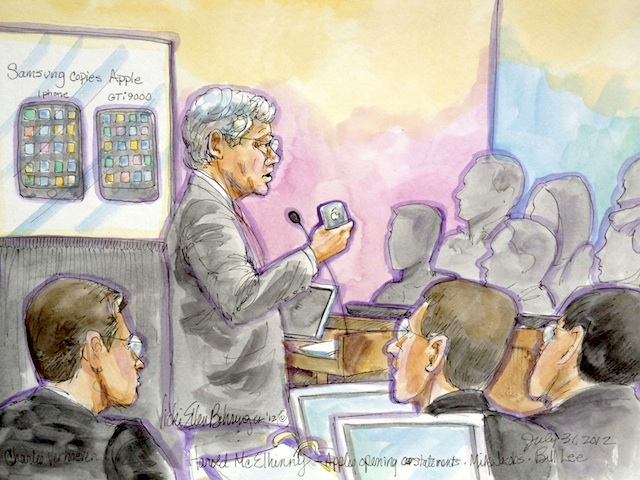
Die Gerichtsverhandlung im Streit „Wer hats erfunden“ zwischen Apple und Samsung darf nicht abgelichtet werden. Im Java-Patentstreit zwischen Google und Oracle will Richter William Alsup jedoch grosstmögliche Transparenz. In einer Verfügung vom 7.8.2012 fordert er beide Parteien auf, alle Autoren, die sich im Rahmen des Rechtsstreits geäussert haben und auf der Paylist stehen, zu nennen – dies gilt auch für bezahlte Blogger. Weil heute alles so durchsichtig ist, gibt es die Verfügung online. Der amüsante Text lautet:
„The Court is concerned that the parties and/or counsel herein may have retained or paid print or internet authors, journalists, commentators or bloggers who have and/or may publish comments on the issues in this case. Although proceedings in this matter are almost over, they are not fully over yet and, in any event, the disclosure required by this order would be of use on appeal or on any remand to make clear whether any treatise, article, commentary or analysis on the issues posed by this case are possibly influenced by financial relationships to the parties or counsel. Therefore, each side and its counsel shall file a statement herein clear identifying all authors, journalists, commentators or bloggers who have reported or commented on any issues in this case and who have received money (other than normal subscription fees) from the party or its counsel during the pendency of this action. This disclosure shall be filed by Noon on Friday, August 17, 2012.“
Die öffentliche Auseinandersetzung hat direkt nichts mit dem Thema dieses Blogs zu tun. Aber indirekt eben schon, handelt es sich meines Wissens nach um den ersten Fall gerichtlich verordneter Offenlegung von Auftragsbloggern. Ist das gut oder schlecht für die Transparenz von Unternehmenskommunikation?
Alexandre Robert